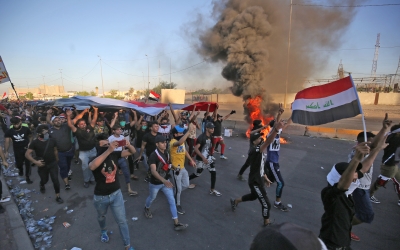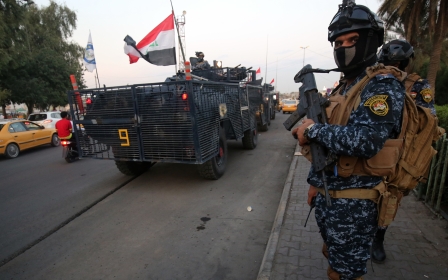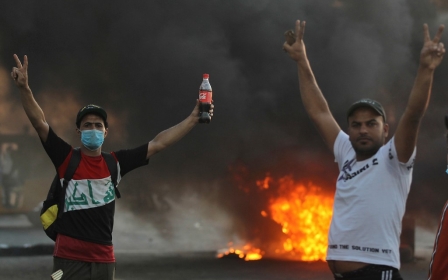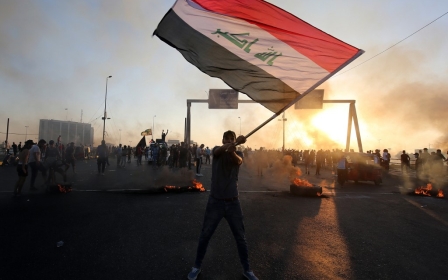Iraqi armed groups raid offices of media outlets covering protests
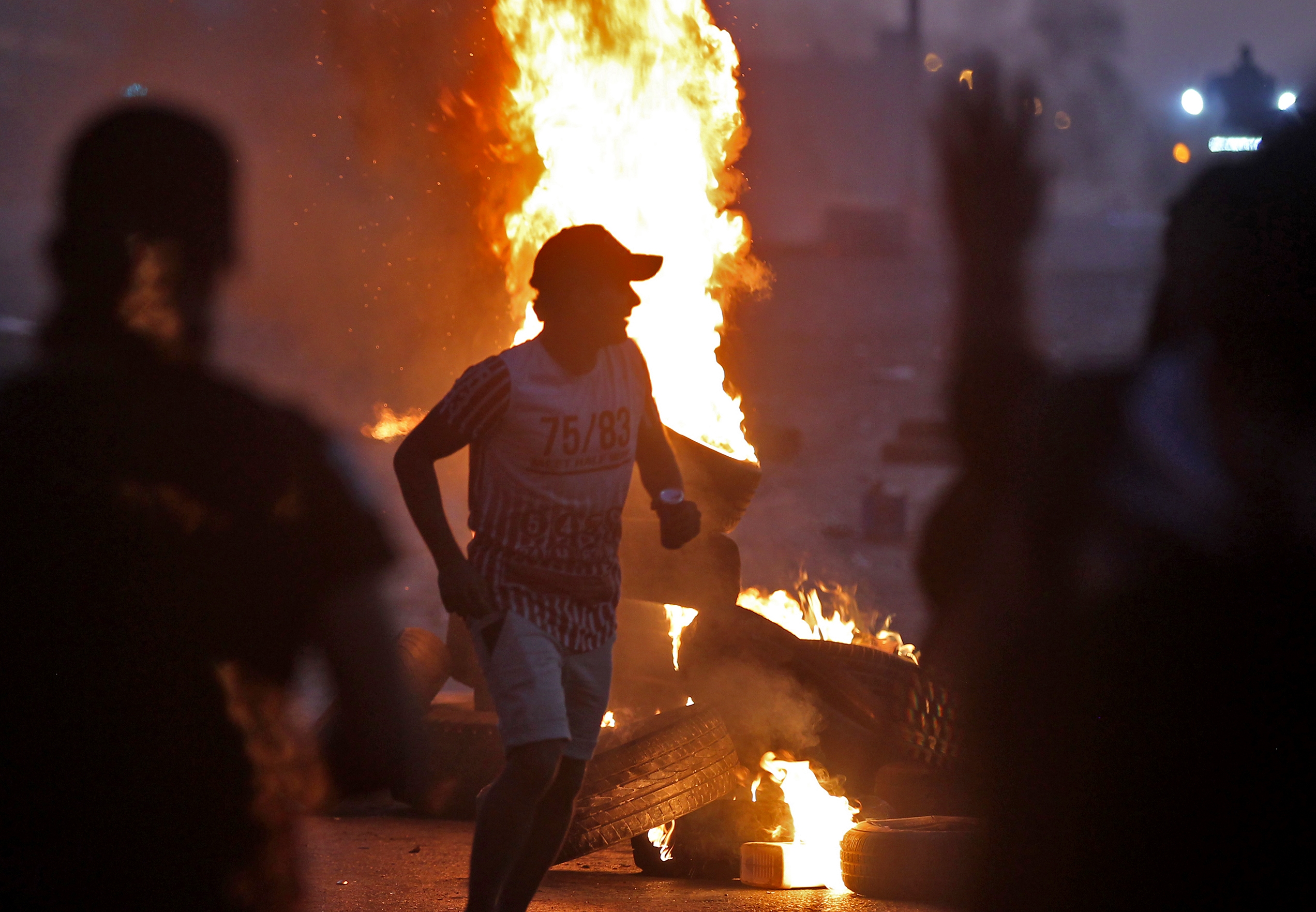
As protests have engulfed cities across Iraq, armed men have raided the offices of several Iraqi and Arab news channels, forcing them off air in an apparent attempt to restrict coverage of the demonstrations and deadly crackdown on them.
Multiple journalists who witnessed the raids on Saturday have said the Iran-backed Saraya al-Khorasani (Khorasani Brigades) militia was responsible.
Fighters stormed the offices of well-known outlets such as TRT Arabic, NRT Arabia, and Dijla TV, as well as others.
On Saturday evening, masked men stormed NRT Arabia’s Baghdad studio, destroying everything from broadcasting equipment to office furniture, a journalist present during the attack told Middle East Eye.
“I believe that they were from an Iran-backed militia,” said a witness, who wished to remain anonymous for security reasons.
New MEE newsletter: Jerusalem Dispatch
Sign up to get the latest insights and analysis on Israel-Palestine, alongside Turkey Unpacked and other MEE newsletters
“Thank God that none of us present were hurt. They seized our phones, in order to stop us from calling out or filming them,” the journalist added.
“They were driving white Toyota Land Cruiser GXR SUVs, and also attacked the area’s police station.”
The attack on the NRT Arabia office was not the first, and appears part of an orchestrated campaign against TV news.
Similar attacks were carried out by armed men with the same description on the Baghdad offices of Dijla TV, al-Arabiya, al-Ghad, and al-Hadath on Friday and Saturday.
Meanwhile al-Forat TV was hit with rocket early on Sunday morning.
These events are widely being perceived as part of an effort to curb coverage of the ongoing demonstrations, and is not the only measure being used to clamp down on free speech.
Security forces have violently cracked down on the protests, which erupted in Baghdad on Tuesday and have since spread to cities across Iraq’s south.
At least 110 people have been killed, with a further 6,000 wounded, since the demonstrations began.
This number includes eight members of the security forces and those injured during acts of civil unrest against 51 local government buildings and the offices of eight political parties, the ministry said.
Internet cut
However, the government hasn’t only relied on the security forces to quell the protests.
As part of the government’s attempt to minimise the impact and awareness of the demonstrations, internet service has been cut to around 75 percent of households in Iraq, leaving many in rural areas without proper means to communicate.
“The attack on TV channels’ offices is an attempt to block Iraqis from communicating and learning what is going on, and prevents coordination amongst protesters. This is also why the government shut down the internet," Iraqi journalist Awab Ayoub told MEE.
Ayoub’s colleagues at the various affected stations told him the armed men seemed intent on putting an end to the demonstrations and maintaining the political status quo.
“Worse yet, is that the official number of people arrested, hurt, or even killed, that we hear on the state-affiliated TV is not always the real number,” he said.
“When the independent media state the accurate, often much higher number, the government seeks to stop it. The government is seeking to stop the free press."
This concern is echoed by Maan Jizzani, an Iraqi journalist now based in the US, who tweeted: "I believe that there is a list of names of journalists and activists who will be arrested on charges of incitement.”
“Every year, throughout Iraq, between 220 and 280 journalists are subject to various attacks, including beatings and detentions and the confiscation of their press tools” Ibrahim al-Sarraj, head of the Iraqi Journalists Rights Defense Association (IJRDA), told MEE.
"In general, attacks on the media are often carried out on behalf of politicians, even by the security forces, militias or the politicians’ bodyguards,” Sarraj said.
"The Iraqi government does little, if anything, to cooperate with us. Unfortunately, the legislation of the Journalists' Right Law did little to stymie the attacks on journalists."
Middle East Eye delivers independent and unrivalled coverage and analysis of the Middle East, North Africa and beyond. To learn more about republishing this content and the associated fees, please fill out this form. More about MEE can be found here.


